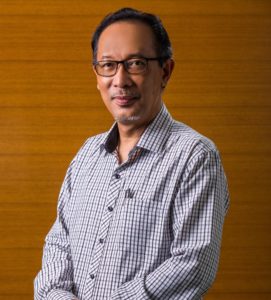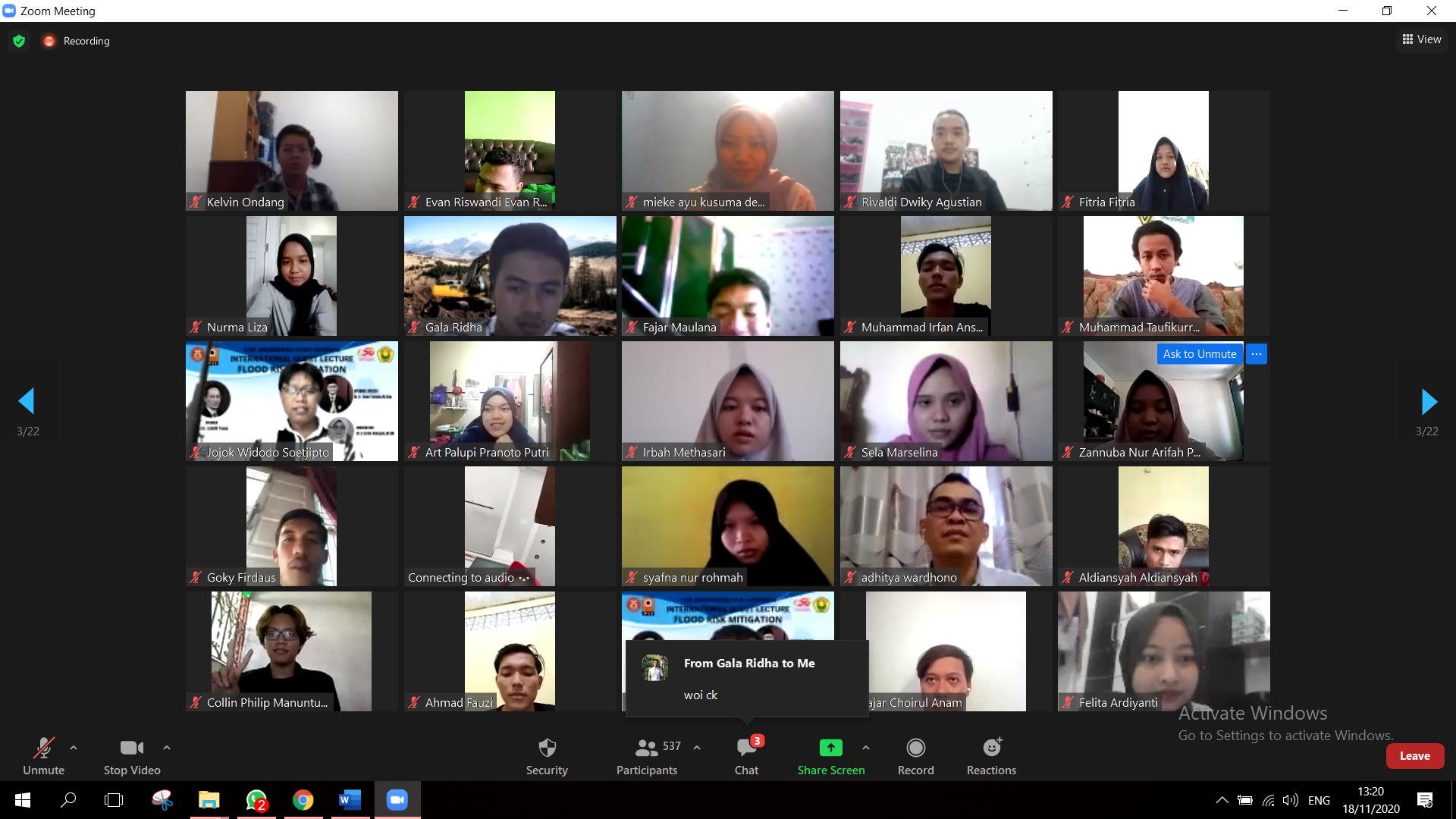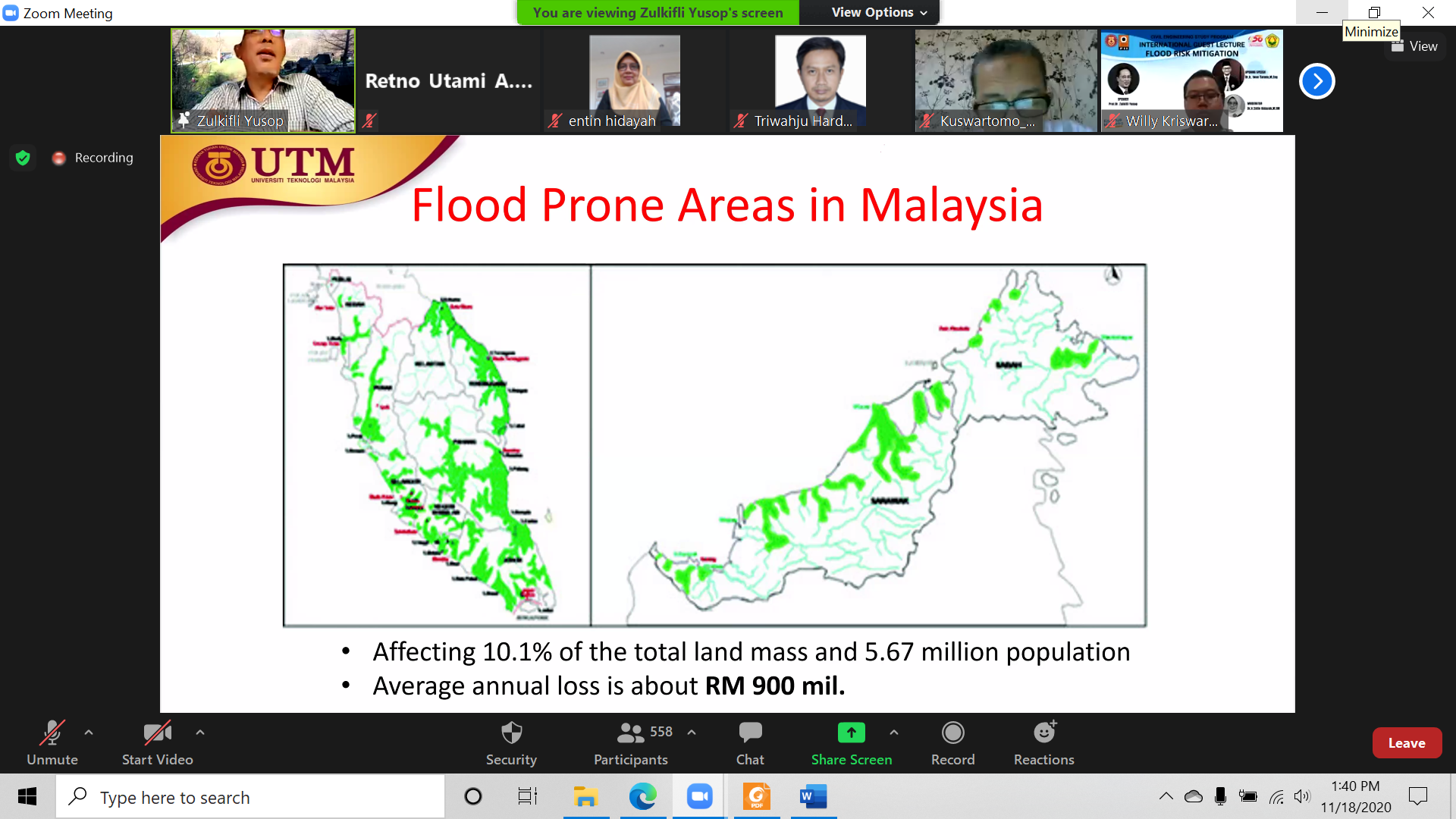Civil Engineering Department of Universitas Jember holding an International Guest Lecture on Infrastructure Development with a topic about ‘Flood Risk Mitigation’ on Wednesday, November 18th 2020. This lecture is running online with Zoom Application and attended by more than 550 participants. The participants are consist of the Head of Civil Engineering, College at The Institute of Indonesia Engineers (PII), students from Universiti Teknologi Malaysia (UTM), students from non-UNEJ, academics, and students of Universitas Jember.
This lecture led by Dr. Ir. Entin Hidayah, MUM with Retno Utami W. Ph.D. as master of ceremony. Opening Speech is delivered by the Dean of Engineering Faculty Dr. Ir. Triwahju Hardianto, S.T., M.T. The speaker in this International Guest Lecture is Prof. Zulkifli Yusop from Universiti Teknologi Malaysia. Professor Zulkifli is Professor of Environmental Hydrology at Universiti Teknologi Malaysia, Senior Fellow at the Centre for Environmental Sustainability and Water Security at the University. Professor Zulkifli is a distinguished researcher and academic who is globally recognized as an authority in water security and sustainability with over 100 articles in refereed journals to his credit and has contributed many chapters to academic books. He also has been appointed as a Consultant to UNESCO to assess climate change impact studies in the South Pacific Island Countries, and many other awards.

In this lecture, Professor Zulkifli explained about types of floods. There are 5 types of floods that are river flood, coastal flood, storm surge, flash flood, and monsoon flood. Flood-Global facts explained that more than 17 million people at risk of being displaced each year because flood is getting more frequent from 1960’s to 2000’s, about 10 times increase. However, the number of affected people seems to decline. Flood has many impacts such as social impacts, environmental impacts, and economic impacts. The social impact affects people’s houses, food and water supply, and their daily lives. Environmental impact effects on the natural environment, flora & fauna in the local area, water quality and sewage, solid waste. The economic impact affects people’s works, jobs, income, and business. There are 2 types of flood damages which are direct and indirect. Direct damages are damage to the private buildings, erosion of agricultural soil, loss of life, injuries, negative effects on ecosystems, etc. Indirect damages are disruption of public services outside the flooded area, trauma, loss of trust in authorities, health, and psychological damage.
Professor Zulkifli also explained about flood management approaches such as river management, hard engineering, and soft engineering. The flood management approach is lengthening the river or construct online control to increase the lag time and regulate or manage floods in the ecologically sensitive areas. He said that we can also mitigate the flood impact using structural and non-structural mitigation. On the structural mitigation, we can build floodwall, dam, seawall and etc. On the non-structural mitigation, we can do reforestation, conservation, mapping the risk of the flood and etc.
During the lecture, the participant is very attractive and asking many questions their curious about flood risk mitigation. Eventho the pandemic was still ongoing, it didn’t decrease the enthusiasm for participants to learning and gain lessons in the field of civil engineering.




